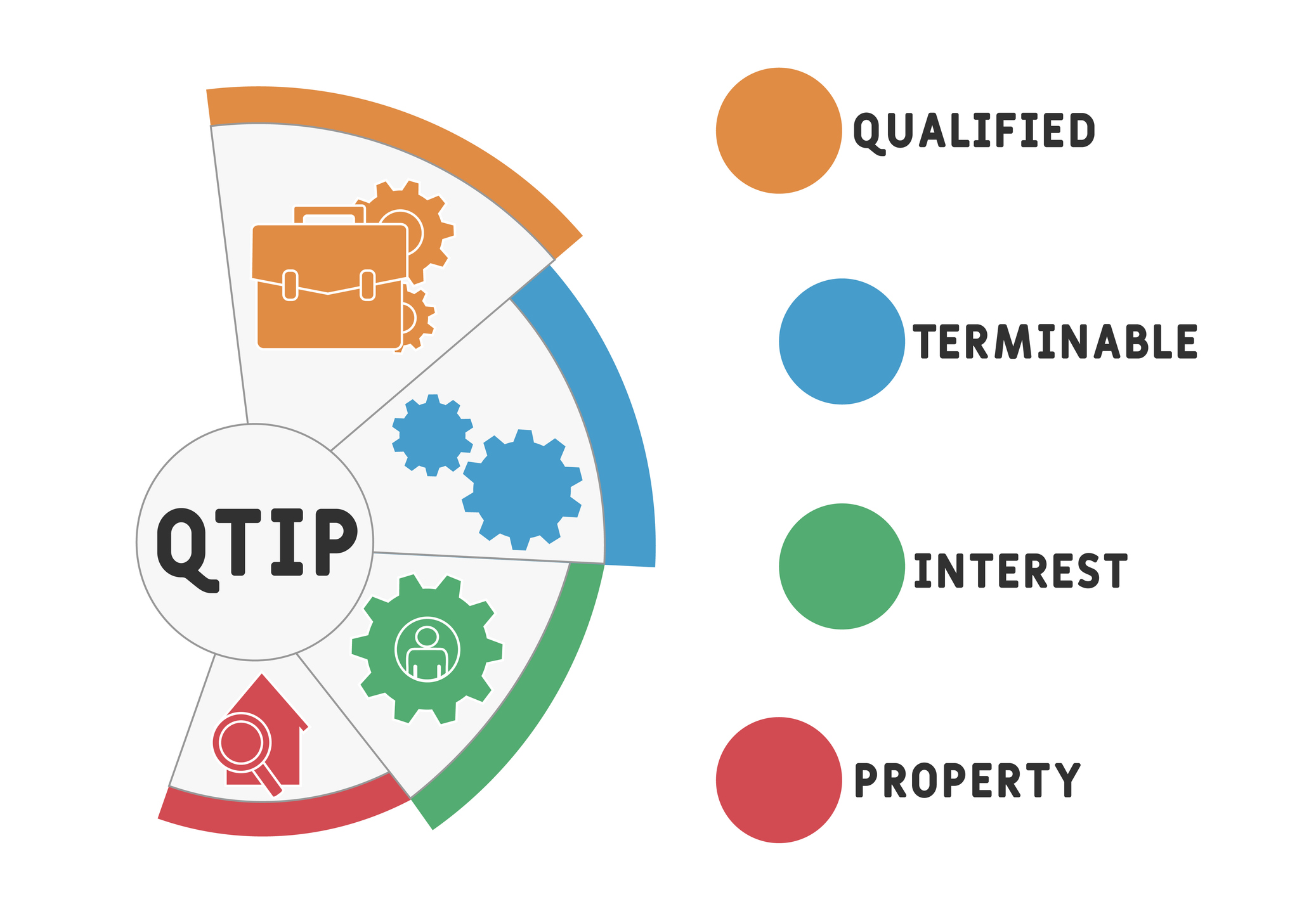Is Your Estate at Risk? The Five Trusts You May Be Missing
You can use these trusts to cement your legacy, organize your estate and limit your exposure to estate and gift taxes.


Profit and prosper with the best of Kiplinger's advice on investing, taxes, retirement, personal finance and much more. Delivered daily. Enter your email in the box and click Sign Me Up.
You are now subscribed
Your newsletter sign-up was successful
Want to add more newsletters?

Delivered daily
Kiplinger Today
Profit and prosper with the best of Kiplinger's advice on investing, taxes, retirement, personal finance and much more delivered daily. Smart money moves start here.

Sent five days a week
Kiplinger A Step Ahead
Get practical help to make better financial decisions in your everyday life, from spending to savings on top deals.

Delivered daily
Kiplinger Closing Bell
Get today's biggest financial and investing headlines delivered to your inbox every day the U.S. stock market is open.

Sent twice a week
Kiplinger Adviser Intel
Financial pros across the country share best practices and fresh tactics to preserve and grow your wealth.

Delivered weekly
Kiplinger Tax Tips
Trim your federal and state tax bills with practical tax-planning and tax-cutting strategies.

Sent twice a week
Kiplinger Retirement Tips
Your twice-a-week guide to planning and enjoying a financially secure and richly rewarding retirement

Sent bimonthly.
Kiplinger Adviser Angle
Insights for advisers, wealth managers and other financial professionals.

Sent twice a week
Kiplinger Investing Weekly
Your twice-a-week roundup of promising stocks, funds, companies and industries you should consider, ones you should avoid, and why.

Sent weekly for six weeks
Kiplinger Invest for Retirement
Your step-by-step six-part series on how to invest for retirement, from devising a successful strategy to exactly which investments to choose.
There are different types of trusts that can be used to achieve specific estate planning and wealth preservation goals. Irrevocable trusts can be used to protect assets from creditors and to minimize estate taxes. A revocable trust may be the right choice if you want to protect assets and aren’t sure about your beneficiary. If you are philanthropically-minded, a charitable remainder trust can be used to provide income to a beneficiary for life, while also supporting a charitable cause.
To determine the best type of trust for your specific needs and goals, it’s important to consult with an estate planning professional. An estate planning attorney can help you understand the tax implications of different trusts and draft trust documents that comply with state and federal laws.
The passage of Trump's tax package in the OBBB has created a measure of certainty and opportunities to fine-tune your estate plan. The estate tax exemption was not only made permanent, but was also increased. And favorable changes to the Alternative Minimum Tax (AMT) will give you more income, which may allow you to increase the size of the trusts you leave to your beneficiaries.
From just $107.88 $24.99 for Kiplinger Personal Finance
Become a smarter, better informed investor. Subscribe from just $107.88 $24.99, plus get up to 4 Special Issues

Sign up for Kiplinger’s Free Newsletters
Profit and prosper with the best of expert advice on investing, taxes, retirement, personal finance and more - straight to your e-mail.
Profit and prosper with the best of expert advice - straight to your e-mail.
Here's a look at some of the most common trusts and when to use them.
Trust #1: Qualified Terminable Interest Property (QTIP)

Who for? Blended families
A Qualified Terminable Interest Property (QTIP) trust can help you provide for your children from a previous relationship, even if you have remarried. This type of irrevocable trust can be used to cover the living expenses of your surviving spouse until their death, with any remaining funds going to other beneficiaries after their passing.
The grantor (a person or entity that creates and funds the trust), and not the surviving spouse, determines how the remainder of the trust will be distributed after the surviving spouse's death. To ensure the money lasts, these trusts often include provisions that prevent the trust from being excessively drawn down during the surviving spouse's lifetime.
QTIP trusts are a specific type of trust that allows for the deferral of estate taxes until the death of the surviving spouse. This can be a significant advantage for estate planning, as the trust's assets can potentially grow tax-free during the surviving spouse's lifetime. After your spouse passes away, the remaining assets in the QTIP trust will be distributed to your children from the earlier relationship or another designated beneficiary.
However, it's important to note that the QTIP election must be made by the executor of the estate and that the surviving spouse must be entitled to all the income from the trust for life.
Trust #2: Special-needs trusts

Who for? Heirs with a disability
One downside to inheritances for individuals with disabilities is the potential reduction or complete loss of government benefits to which they would otherwise be entitled. This unintended consequence can arise because inheritances are often considered assets that disqualify individuals from receiving needs-based government assistance.
Special-needs trusts (SNTs) offer a solution to this problem. These trusts are designed to pay for qualified disability-related expenses — such as education, specialized equipment, insurance premiums, and medical costs — that are not covered by federal or state benefits.
The key feature of an SNT is that the trustee, who manages the trust, pays these expenses directly to the service providers. This ensures that no money from the trust goes directly to the beneficiary, thus preserving their eligibility for government assistance programs.
Trust #3: Spendthrift trust

Who for: The irresponsible beneficiary
If a loved one lacks financial know-how or struggles with alcohol, drug, or gambling problems, leaving a lump sum might not be wise.
A spendthrift trust, which can be either revocable or irrevocable, allows the grantor to appoint a trustee who has the discretion to distribute trust assets to the heir based on predetermined guidelines. This prevents the heir from having direct access to the trust. The trustee can also pay creditors and service providers directly. Creditors may not be able to claim a right to the trust's assets because the beneficiary does not control the trust.
An independent trustee may be the best option to administer a spendthrift trust, to help avoid bad feelings and family conflicts. A good trustee might be able to help educate your beneficiaries about budgeting and financial planning.
Trust #4: Irrevocable life insurance trust (ILIT)

Purpose: Maximize your life insurance payouts
An irrevocable life insurance trust (ILIT) may be a good option for families with substantial assets who own or are considering purchasing life insurance. Proceeds from life insurance are included in your estate and subject to estate taxes when you die, but an ILIT can reduce this estate tax burden.
If an ILIT owns your life insurance policy, it would be considered separate from the main estate and, therefore, not subject to estate taxes. Either the grantor funds the trust with cash, which the trust uses to acquire one or more life insurance policies on the grantor’s life, or existing policies can be gifted to an ILIT and the insured must live at least three years beyond the gift date.
ILITs are adept at sheltering large gifts because they are estate-tax efficient, and gifts to ILITs are generally generation-skipping transfer tax (GSTT) exempt, which means that they can make distributions to grandchildren or great-grandchildren without the distributions triggering any GSTT tax.
Trust #5: Charitable Lead Trust (CLT) and Charitable Remainder Trust (CRT)

Purpose: Charitable goals with an income component
Charitable trusts are a strategic way to support philanthropic causes while aligning with personal financial and estate planning goals. These trusts fall into two primary categories, that differ by the timing of the charitable distributions:
- Charitable Lead Trust (CLT): This type of trust prioritizes the immediate needs of the charity. It provides a stream of income to one or more designated charities for a predetermined period, often a set number of years. Once this period elapses, the remaining assets in the trust are transferred to the donor's heirs or other named beneficiaries. CLTs can be structured as either an annuity trust (CLAT), which provides a fixed annual payment, or a unitrust, which distributes a percentage of the trust's annual value.
- Charitable Remainder Trust (CRT): This trust structure prioritizes providing for the donor's financial needs during their lifetime while ensuring a significant charitable gift upon their death. The CRT generates a regular income stream for the donor, or other named beneficiaries, for a specified period, which can be for life or a term of years. Upon the termination of this period, typically the donor's death, the remaining assets in the trust are irrevocably distributed to one or more designated charitable organizations. CRTs can also be structured as annuity trusts or unitrusts also known as a CRUT.
Both CLTs and CRTs offer potential tax advantages, including income, gift, and estate tax deductions, depending on the specific structure and terms of the trust. These trusts can be funded with a variety of assets, including cash, securities, real estate, and business interests.
Choosing between a CLT and a CRT depends on individual circumstances and philanthropic goals. A CLT may be suitable for donors who wish to see the impact of their charitable giving during their lifetime and have sufficient assets to provide for their heirs. A CRT may be appropriate for donors who need a source of income during their lifetime and wish to leave a lasting legacy to their chosen charities.
Why trusts are worth the expense
Estate planning through trusts can provide peace of mind that your assets will be protected in your lifetime and distributed according to your wishes. Establishing a trust can be more expensive and time-consuming than merely writing a will, but the benefits will likely outweigh the cost and inconvenience.
The assets in a properly executed trust can avoid probate and sometimes be protected from creditors and lawsuits. You still get to exercise a measure of control through instructions and the selection of a trustee. In the case of revocable trusts, you maintain control of your assets during your lifetime, and retain the ability to change or dissolve the trust at any time after it's created. Lastly, you have the opportunity to minimize your taxes; depending on the type of trust, you can reduce estate, gift or income taxes and preserve your wealth.
Related Content
Profit and prosper with the best of Kiplinger's advice on investing, taxes, retirement, personal finance and much more. Delivered daily. Enter your email in the box and click Sign Me Up.

Donna joined Kiplinger as a personal finance writer in 2023. She spent more than a decade as the contributing editor of J.K.Lasser's Your Income Tax Guide and edited state specific legal treatises at ALM Media. She has shared her expertise as a guest on Bloomberg, CNN, Fox, NPR, CNBC and many other media outlets around the nation. She is a graduate of Brooklyn Law School and the University at Buffalo.
-
 Quiz: Do You Know How to Avoid the "Medigap Trap?"
Quiz: Do You Know How to Avoid the "Medigap Trap?"Quiz Test your basic knowledge of the "Medigap Trap" in our quick quiz.
-
 5 Top Tax-Efficient Mutual Funds for Smarter Investing
5 Top Tax-Efficient Mutual Funds for Smarter InvestingMutual funds are many things, but "tax-friendly" usually isn't one of them. These are the exceptions.
-
 AI Sparks Existential Crisis for Software Stocks
AI Sparks Existential Crisis for Software StocksThe Kiplinger Letter Fears that SaaS subscription software could be rendered obsolete by artificial intelligence make investors jittery.
-
 Quiz: Do You Know How to Avoid the 'Medigap Trap?'
Quiz: Do You Know How to Avoid the 'Medigap Trap?'Quiz Test your basic knowledge of the "Medigap Trap" in our quick quiz.
-
 We Retired at 62 With $6.1 Million. My Wife Wants to Make Large Donations, but I Want to Travel and Buy a Lake House.
We Retired at 62 With $6.1 Million. My Wife Wants to Make Large Donations, but I Want to Travel and Buy a Lake House.We are 62 and finally retired after decades of hard work. I see the lakehouse as an investment in our happiness.
-
 Social Security Break-Even Math Is Helpful, But Don't Let It Dictate When You'll File
Social Security Break-Even Math Is Helpful, But Don't Let It Dictate When You'll FileYour Social Security break-even age tells you how long you'd need to live for delaying to pay off, but shouldn't be the sole basis for deciding when to claim.
-
 I'm a Wealth Adviser Obsessed With Mahjong: Here Are 8 Ways It Can Teach Us How to Manage Our Money
I'm a Wealth Adviser Obsessed With Mahjong: Here Are 8 Ways It Can Teach Us How to Manage Our MoneyThis increasingly popular Chinese game can teach us not only how to help manage our money but also how important it is to connect with other people.
-
 Global Uncertainty Has Investors Running Scared: This Is How Advisers Can Reassure Them
Global Uncertainty Has Investors Running Scared: This Is How Advisers Can Reassure ThemHow can advisers reassure clients nervous about their plans in an increasingly complex and rapidly changing world? This conversational framework provides the key.
-
 5 Ronald Reagan Quotes Retirees Should Live By
5 Ronald Reagan Quotes Retirees Should Live ByThe Nation's 40th President's wit and wisdom can help retirees navigate their financial and personal journey with confidence.
-
 We're 78 and Want to Use Our 2026 RMD to Treat Our Kids and Grandkids to a Vacation. How Should We Approach This?
We're 78 and Want to Use Our 2026 RMD to Treat Our Kids and Grandkids to a Vacation. How Should We Approach This?An extended family vacation can be a fun and bonding experience if planned well. Here are tips from travel experts.
-
 Should You Jump on the Roth Conversion Bandwagon? A Financial Adviser Weighs In
Should You Jump on the Roth Conversion Bandwagon? A Financial Adviser Weighs InRoth conversions are all the rage, but what works well for one household can cause financial strain for another. This is what you should consider before moving ahead.